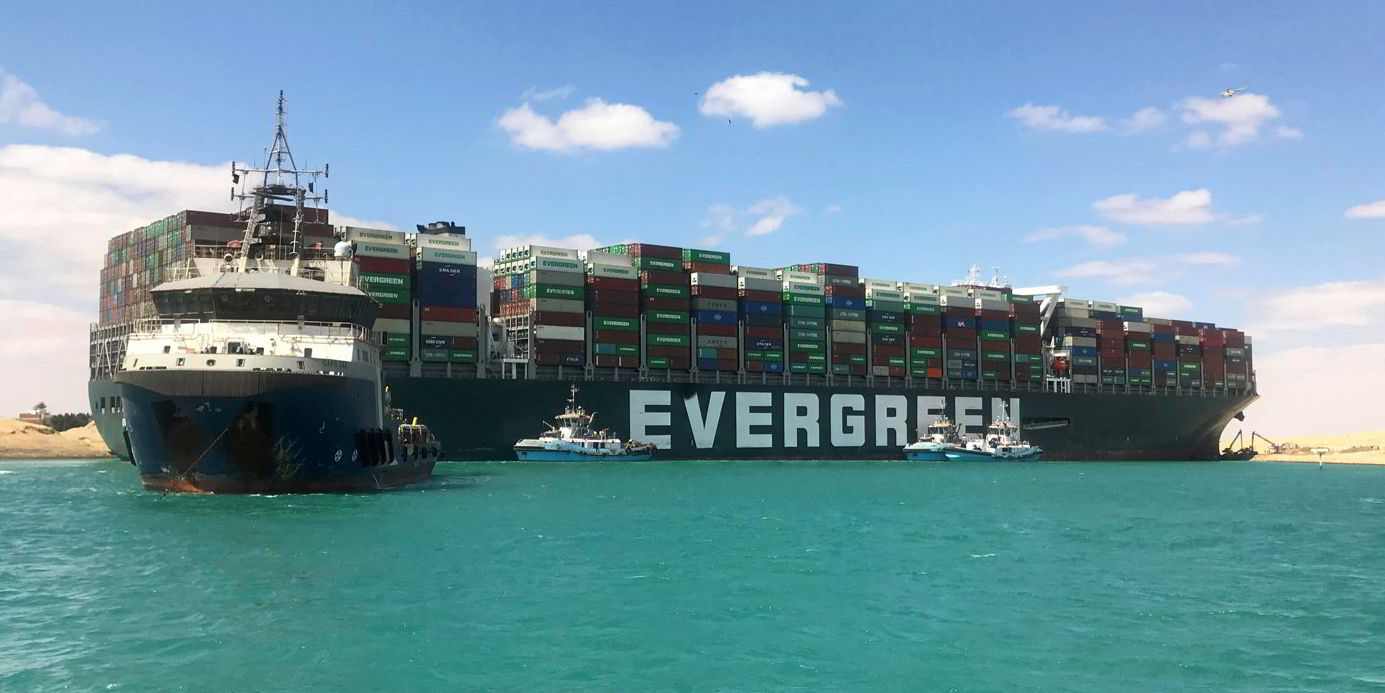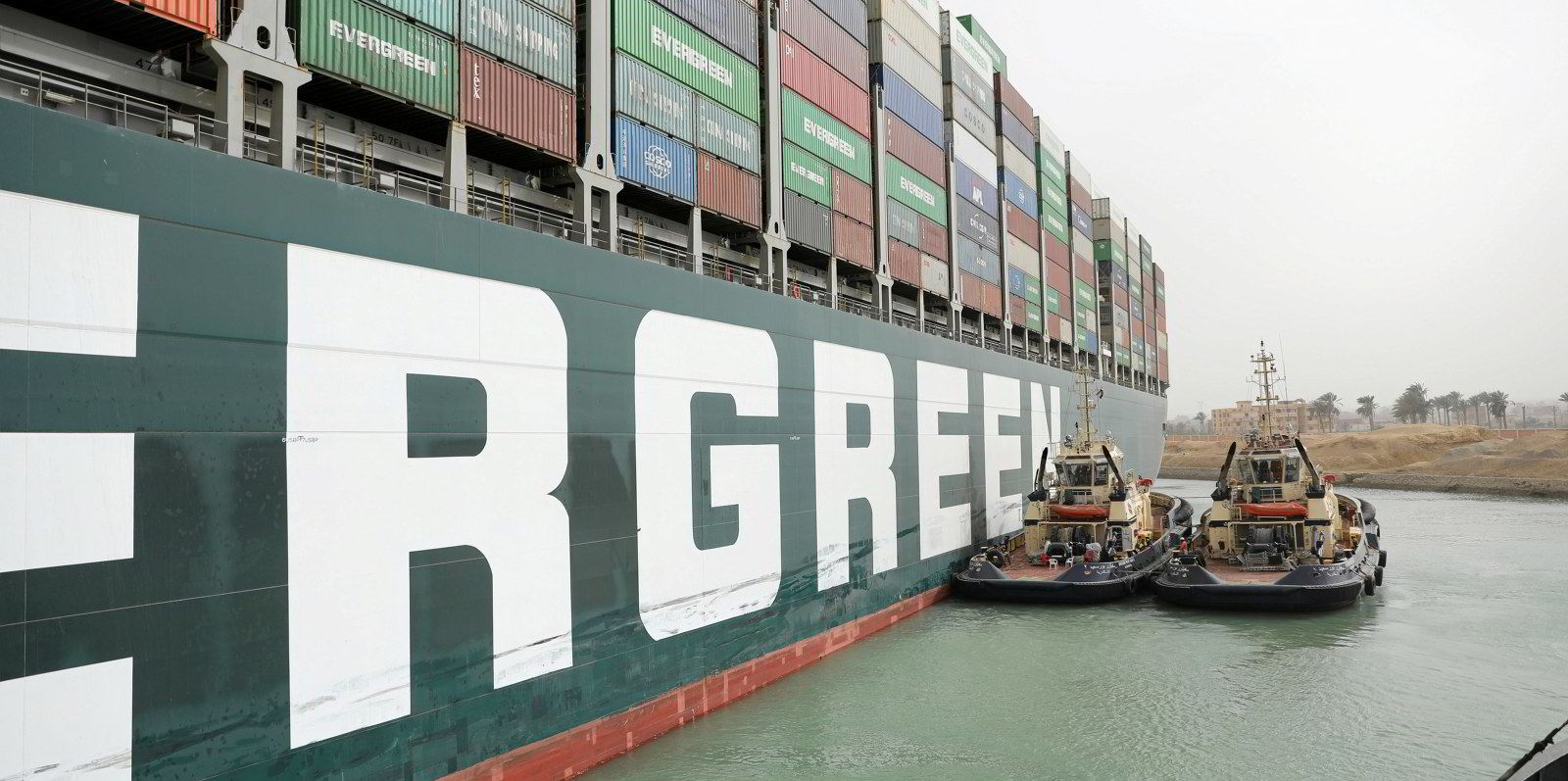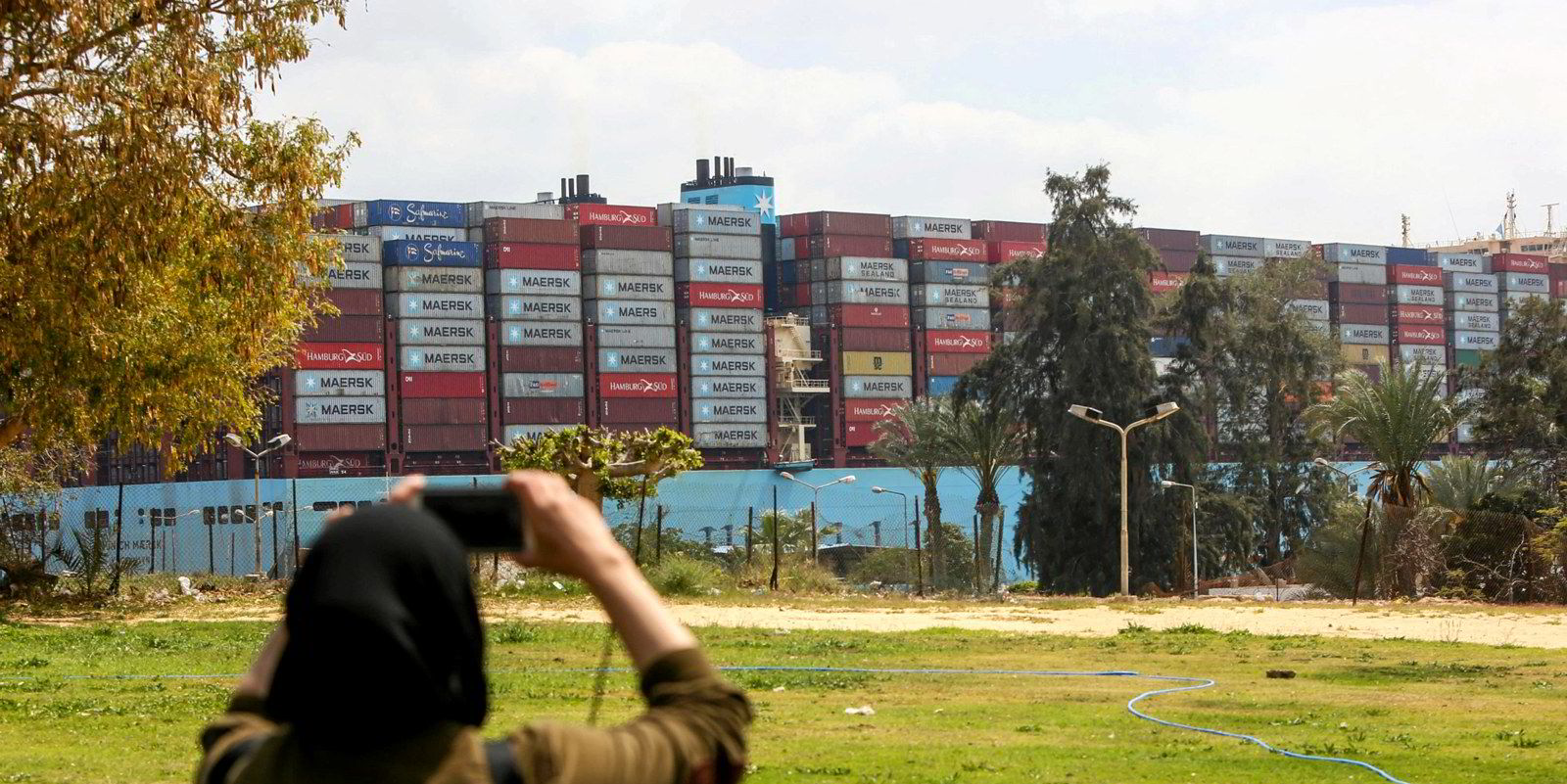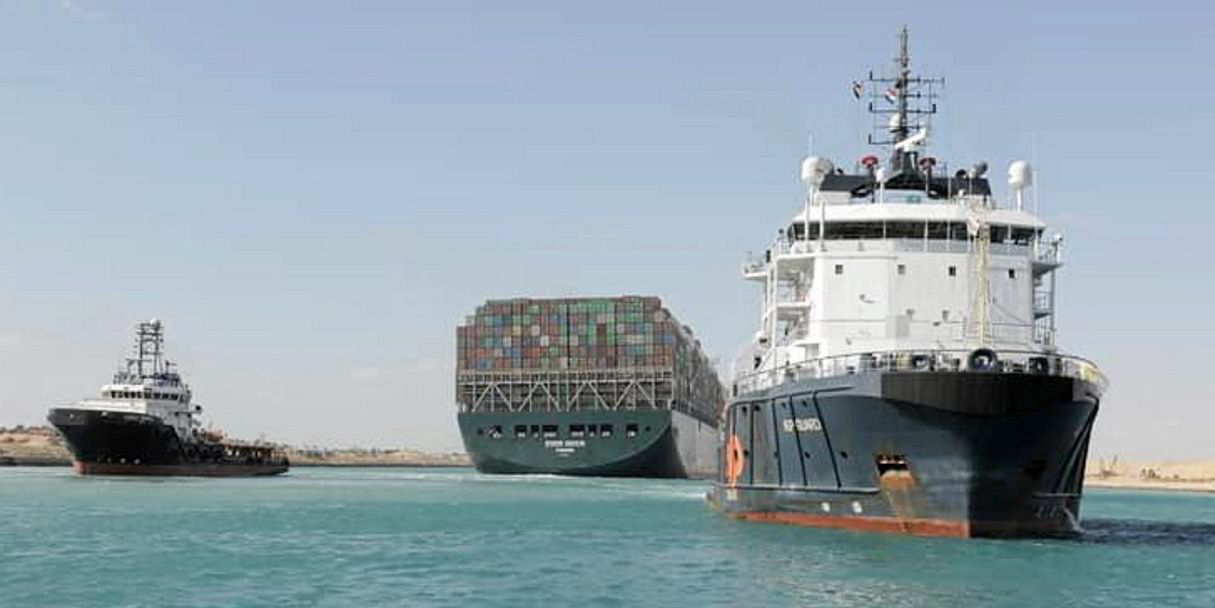Vessel congestion in the Suez Canal is unwinding slowly after being blocked for nearly a week, but early indications show that disruption could continue for days.
The 20,388-teu Ever Given (built 2018), which is owned by Shoei Kisen, was refloated on Monday after running aground last week, blocking the waterway and causing its longest closure since the eight-year shutdown that followed the Six-Day War in 1967.
Some 400 vessels had been waiting when the containership was dislodged, with about 163 able to pass through by Wednesday afternoon in Egypt, according to Leth Agencies.
Latest data compiled by the agency showed that 292 vessels were still caught up in the congestion as of Wednesday afternoon — 150 waiting in Suez and the rest at Port Said.
A southbound convoy of 43 vessels and a northbound group of 38 ships were scheduled to transit the canal on Wednesday, according to Leth.
Arctic Securities said on Tuesday that it could take at least a week to clear the traffic jam that has built up in the region, based on the usual average of 50 vessel transits per day.
“How long it will take to clear the jam will depend on the number of vessels waiting, the amount of tonnage arriving in the coming days and the number of vessels transiting per day,” Arctic analysts said in a note on Tuesday.
“While freight rates for multiple shipping segments have increased due to lower vessel availability, the growing concerns and uncertainties have calmed, which could mean a gradual reversal of rates back to pre-closure levels.”
Bulkers and boxships are the most numerous vessels stuck in the queue, but tanker and container markets have the greatest potential exposure to disruption in the region.
Eighty-eight bulkers and 76 boxships were waiting to transit the waterway on Wednesday afternoon, according to Leth Agencies. For tankers, the queue is expected to take days to clear, with at least five vessels being rerouted.
Following strong gains during the Suez crisis, spot earnings for aframax and suezmax tankers had corrected by more than 15% by Wednesday.
But brokers do not expect long-lasting impact on freight markets from the blockage, aside from a potential tonnage shortage in the Mediterranean and Black Sea in early April.
Container carriers Mediterranean Shipping Co and AP Moller-Maersk have already warned customers about disruption and delays to liner schedules and reduced capacity. The Suez situation has not had much effect on container spot rates, but has added pressure to long-term rates.
Bulkers have escaped relatively unscathed from the congestion in Suez, although a few have already diverted to avoid the area, according to vessel-tracking data.
Owners told TradeWinds that they have not seen much impact from the situation, and bulker markets have kept calm and carried on.







